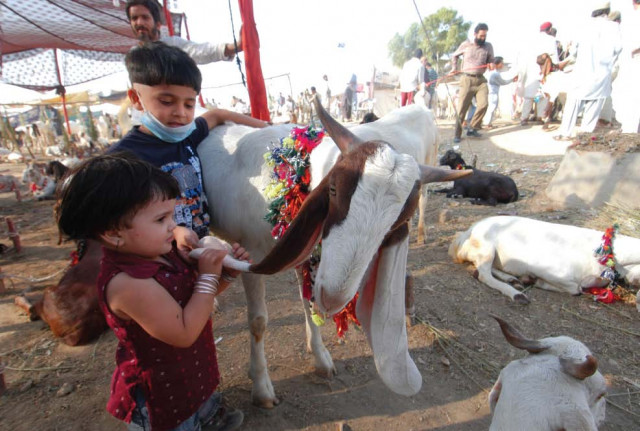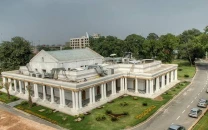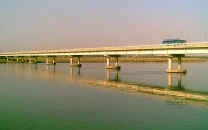This Eid, choose life
As Eidul Azha approaches, many Pakistanis are dedicating their sacrifice to the survivors of the floods.

This Eid, choose life
So as Eidul Azha approaches, many Pakistanis are dedicating their sacrifice to the survivors of the floods. But instead of paying to have a goat slaughtered and the meat sent to the flood-hit areas, some are sending the whole animal instead.
“You have to ask yourself, ‘What do they need right now?’” says Ayesha Raja, who is coordinating efforts to donate livestock. “The floods caused the greatest damage to livestock, which is what people depend on for their livelihoods.”
“There are some people who are both donating livestock and sacrificing animals,” said Tamkinet Karim, director of the Bali Memorial Trust, which is sending goats and cows to widows in villages devastated by the floods. “It’s a personal thing. If people aren’t comfortable with donating livestock, we give them the chance to pay for a sacrifice.”
Mahera Omar of the Pakistan Animal Welfare (PAW) organisation has started a website and a donation initiative through Facebook in Karachi, though she is also getting donations from other cities.
“The floods wiped out almost 1.2 million large and small animals in Pakistan,” she said. “This has left people struggling for food and the scarcity will continue in the long run. It does not make sense to sacrifice more animals.”
An individual who donated to PAW lauded the initiative to send livestock to the flood-hit areas as innovative. “Why not give people a way to earn multiple meals instead of giving them a one-time meal which will have no long-term impact on their lives?”
Another Lahori who works with a civil society organisation and is planning to donate livestock said that many people were uncomfortable replacing the sacrifice with donations for religious reasons. “I’ve heard many people discuss it but they assume that Islam does not allow it,” she said.
Islamic scholar Muhammed Rafi Mufti said the initiative was commendable and would earn Allah’s blessings as an act of charity. But, he said, it was not the same as sacrificing an animal.
“You will not get the credit [sawab] related to sacrifice,” he said, adding that the sacrifice was not a duty [faraz].
Jamia Naeemia chief Raghib Naeemi differed, saying the sacrifice was compulsory. “If you do not sacrifice an animal then you should not go to Eid prayers because it is closely linked with the action of sacrifice. The Holy Prophet (peace be upon him) did not miss a sacrifice once,” he said.
Published in The Express Tribune, November 16th, 2010.



















COMMENTS
Comments are moderated and generally will be posted if they are on-topic and not abusive.
For more information, please see our Comments FAQ